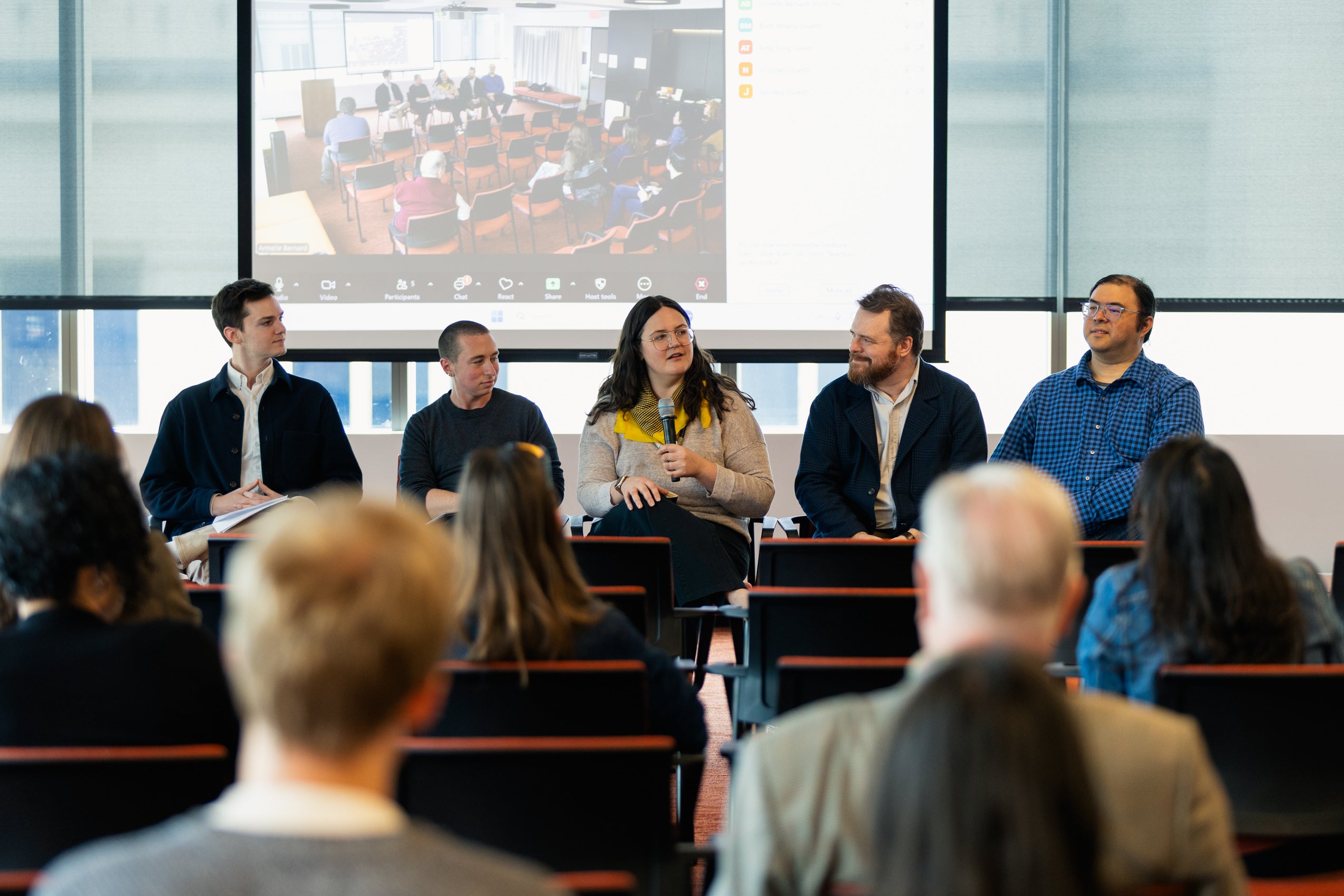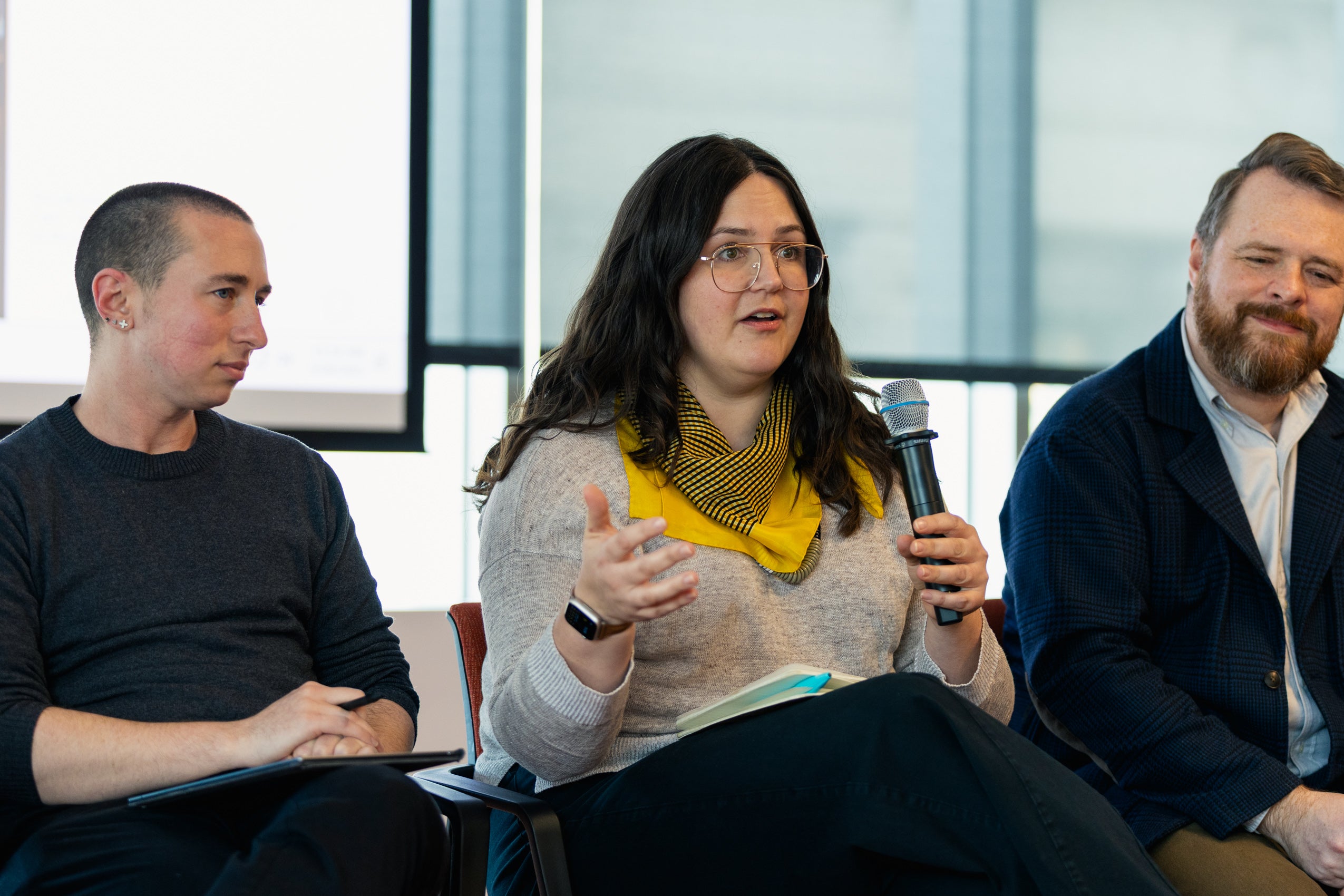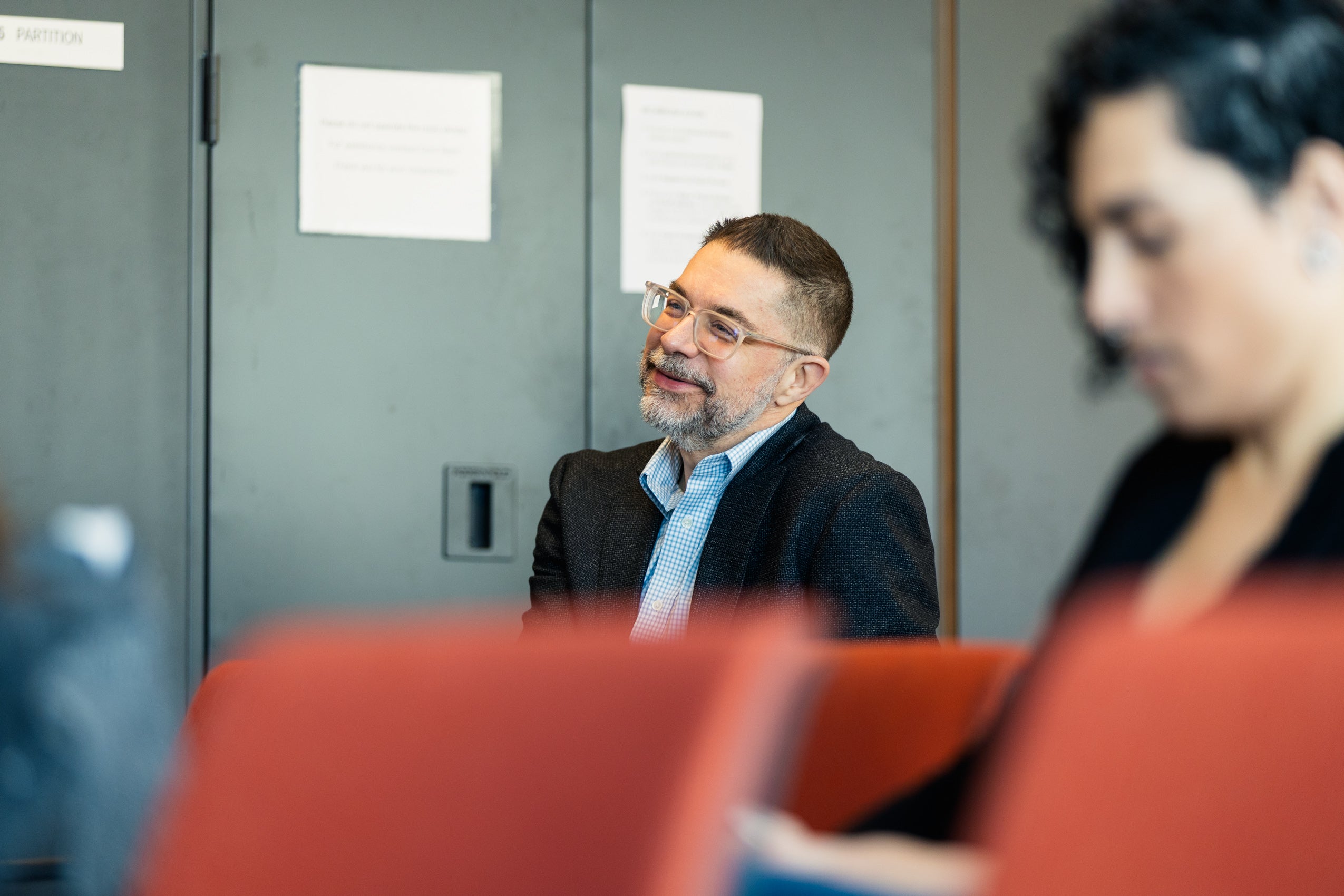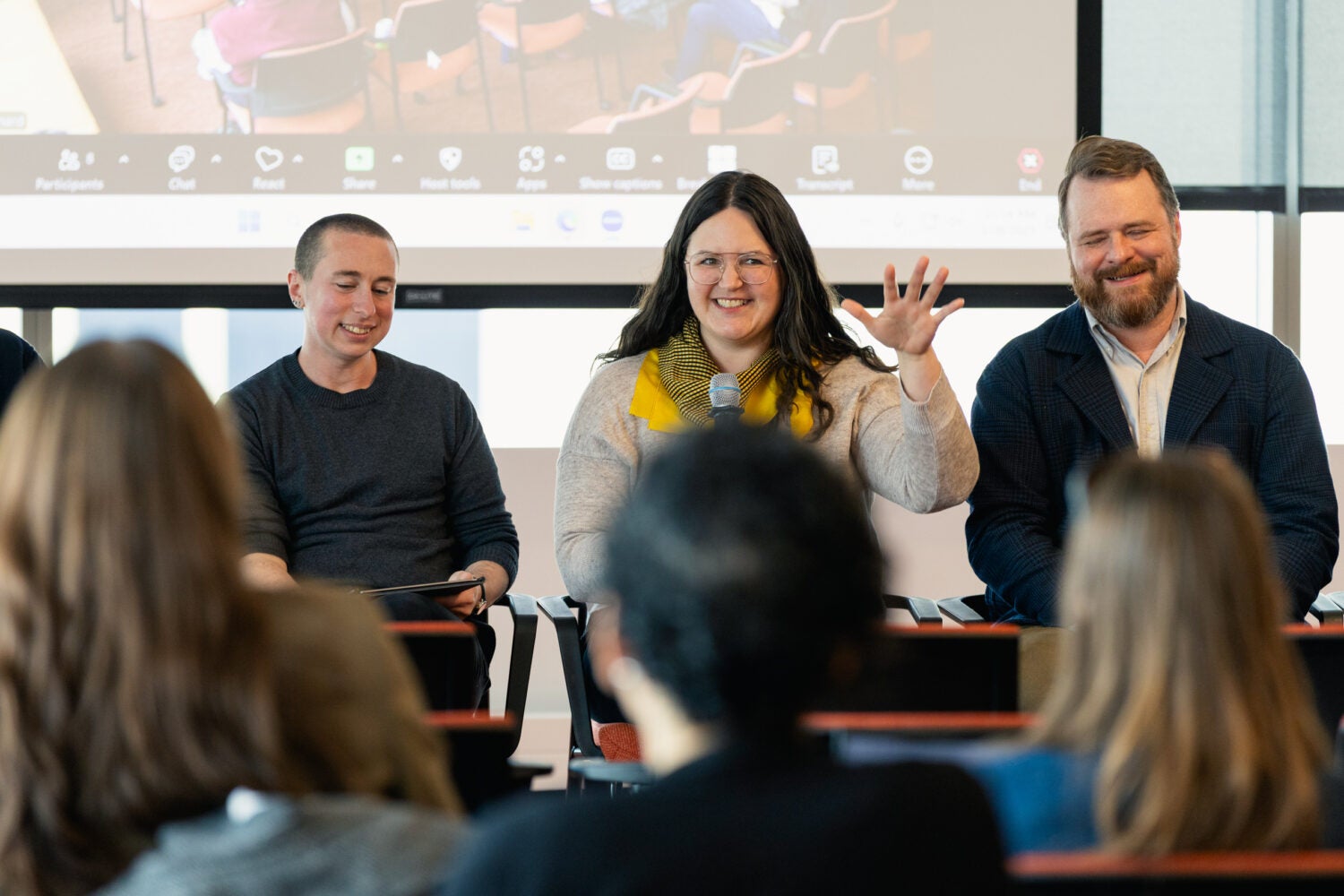Cyberlaw has expanded just as the tech field has in the 25 years since Harvard Law School’s Cyberlaw Clinic was established. As former Clinic Director Jessica Fjeld said during a recent anniversary conference at Harvard Law School, “I always think of the Cyberlaw Clinic’s work as the center of a Venn diagram between technology, law, and social justice.”
The Cyberlaw Clinic was created by Berkman Klein Center founders Jonathan Zittrain ’95 and Charles Nesson ’63. It’s the first of its kind to provide high-quality, pro-bono legal services to clients on issues relating to the internet, new technology, and intellectual property.
An anniversary celebration on campus in late March featured remarks from Christopher Bavitz, WilmerHale Clinical Professor of Law, vice dean for Experiential and Clinical Education, and the Cyberlaw Clinic’s managing director. There also were panel discussions on the student and alumni experience, and on clinical teaching and advocacy.
During the latter panel, Kendra Albert ’16, a former instructor at the clinic and current partner at Albert Sellars, pondered the definition of cyberlaw.

“After my time in the clinic, I came to realize it’s anything that involves a computer and that the instructor wants to work on,” Albert said. “In some ways that sounds dismissive, but I think it came to represent the term’s flexibility and the ability of this clinic in particular to adapt to what’s needed in the moment. It’s actually … quite unusual to have a clinic with so broad a mandate, and what’s made the work of this clinic really interesting is that people come in doing one thing and wind up doing something totally different.” Albert decided to focus on First Amendment issues as a direct result.
Fjeld came to the clinic from WGBH’s legal department where she had worked on intellectual property law but took on the clinic’s social justice practice when its director moved on.
This, she said, was a major influence on her current work as managing director of the nonprofit De/Center.

“The clinic has always focused on real people and real harms first,” she said. “When you look at the intersection of technology and law, there is a lot of structural injustice that defines who gets to occupy that intersection. I have always thought about public interest technology lawyers as having a real responsibility to acknowledge that the terrain that we operate on does not allow everyone the same starting point. And that our work needs to address the inequality that we find.”
Boston University law professor Andy Sellars, a partner at Albert Sellars, went a step further and said that his clinic work, specializing in intellectual property and freedom of expression, made him realize that he “didn’t care a whole lot” about technology on its own. “That’s an epiphany I had; I’m not excited by technology in the least,” he said. “The only thing I care about is how it affects the lives of people. And this is a tradition I think that I picked up from Chris [Bavitz] … centering people as being the most important part of what I do.”

Because cyberlaw is continually evolving, students and clients in the field learn to live with ambiguity, said the clinic’s newest instructor, Michael Rosenbloom. “Clients that we’re working with are trying to make their way in areas that are uncertain, whether from inherent uncertainty or world events. The types of work products that they’re asked for are not the kind they’re used to.”
This is an opportunity for students to assume a counseling role with the client, Sellars added. “That is so essential in the work of a technology lawyer, to understand that the harms that flow from technology are not always regulated yet, not always proscribed yet … If you’re concerned about harm or you’re concerned about trouble, then you really need to appreciate what you’re doing in the world when it comes to technology. I can say that all day long but when my students feel empowered to say that to a client, that’s awesome.”
Want to stay up to date with Harvard Law Today? Sign up for our weekly newsletter.
